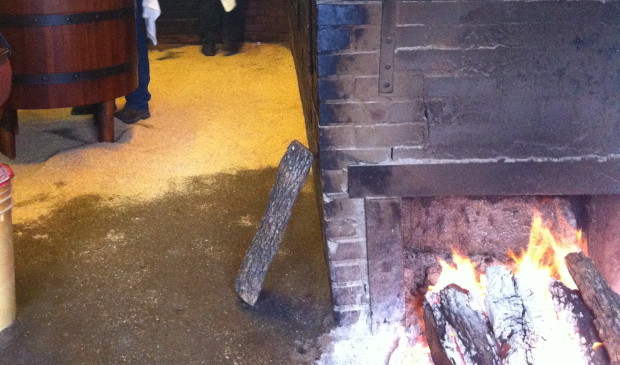Where there’s smoke, there are stakeholders
Friday, April 3, 2015 by
Elizabeth Pagano In a very Austin conversation Thursday, City Council took up the issue of barbecue joints, neighborhoods and how to encourage their peaceful coexistence.
And, in a very Austin conclusion, Council members voted to initiate a stakeholder process to discuss the issue further.
In this case, the issue at hand is how the city can best regulate the smoke from food establishments that neighbors say affects their quality of life. The original proposal asked restaurants and food trailers that use a wood- or charcoal-burning stove within 100 feet of a residential property to mitigate the impact of smoke emissions on residents “by relocating smoke-emitting equipment to exceed (100 feet) or installing smoke-mitigating devices.”
That proposition worried restaurant and food trailer owners, who say the cost of complying with the regulations could impose a financial hardship.
Council Member Pio Renteria, who sponsored the resolution, explained that he wanted to address air quality issues, not harm businesses. He said he did not intend the resolution to target barbecue restaurants.
“There’s nothing in the city ordinances addressing smoke, and that’s the reason I brought (this) resolution up,” said Renteria. “I know there is a solution, and if we can bring everyone to sit down together to discuss this, that would be great.”
Though there was some disagreement at Council’s Tuesday work session over the proposed resolution, amendments that emphasized the stakeholder process won over most of the Council, which voted 9-2 to support the resolution. Council Members Ellen Troxclair and Don Zimmerman voted in opposition.
While the resolution may lead to a code amendment eventually, it will first have to go through a stakeholder process and the Health and Human Services and Economic Opportunity Council Committees before the full Council will consider making any changes official.
Council Member Ora Houston emphasized the difference between people moving to a nuisance and having a nuisance come to them. She explained that her district has many established barbecue businesses, and she had previously been wary of “people who come into the neighborhood who are new to the city and decide that this is a nuisance.”
However, Houston said that after Thursday’s discussion, she was satisfied that there would be a stakeholder process broad enough to ensure that there would not be harm done to local businesses.
“This is not a barbecue issue. This is an air quality issue,” said Louis Guerra, who lives behind Terry Black’s Barbecue. He has lived in his home for 35 years. Terry Black’s opened in June 2014. Since then, Guerra says he has been inundated with smoke.
“Nine months ago, five smokestacks went up basically in my backyard. They are wiping me out,” said Guerra. “I get congestion in my chest. I can’t breathe. … I can’t use the backyard. Even when the wind is blowing north … there is still smoke in the backyard.”
Council members also heard from barbecue restaurant owners who expressed concern about the unintended consequences that the changes to the city ordinance could have.
Hoover Alexander, owner and chef of Hoover’s Cooking, requested a chance to give input on any change, and asked Council to refrain “from enacting sweeping changes that don’t distinguish between different businesses.”
“Small businesses are, indeed, neighbors,” said Alexander. “We want to be a part of the solution.”
Though the majority of Council voted in favor of the resolution, both Zimmerman and Troxclair expressed reservations about moving forward.
“My concern is that even by passing a resolution just to convene a stakeholder group, we are still sending a clear message that we are going down the path of initiating a citywide code change,” said Troxclair.
Council Member Sheri Gallo voted in favor of moving forward, but stressed the importance of knowing the economic impact on businesses before adopting any ordinance.
“I think this is important, whether we are talking about smoke in restaurants or land use,” Gallo said. “Quite often in the past, ordinances have been implemented with no consideration to the economic impact to the people involved.”
Photo by Kate Itzkowitz
You're a community leader
And we’re honored you look to us for serious, in-depth news. You know a strong community needs local and dedicated watchdog reporting. We’re here for you and that won’t change. Now will you take the powerful next step and support our nonprofit news organization?




